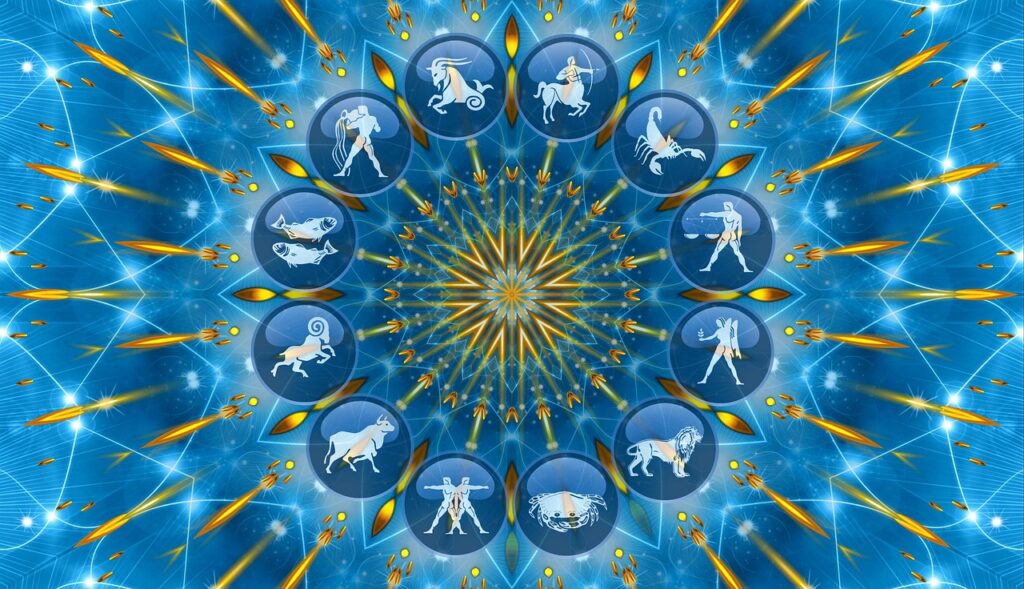Ross Geller burst onto television screens in 1994, forever changing how the world viewed paleontologists. While most people couldn’t name a single real paleontologist, millions could instantly recognize the slightly neurotic, dinosaur-obsessed character from Friends. David Schwimmer’s portrayal of this academic turned sitcom legend did something extraordinary – it made fossils funny and brought prehistoric science into living rooms across the globe. His character became the unlikely ambassador for an entire scientific field, proving that even the dustiest corners of academia could sparkle with humor.
The Birth of Television’s Most Beloved Paleontologist

When Friends creators David Crane and Marta Kauffman conceived Ross Geller, they needed a character who was intellectual yet relatable, sophisticated but prone to comedic mishaps. The choice of paleontology wasn’t random – it perfectly embodied the quirky, niche expertise that would make Ross simultaneously impressive and endearingly dorky. His profession became his defining characteristic, setting him apart from typical sitcom leading men who worked in generic office jobs or undefined careers.
David Schwimmer brought unexpected depth to the role, transforming what could have been a one-note “smart guy” into a fully realized character whose passion for paleontology felt genuine. The writers cleverly used his career as both a source of comedy and character development. Ross’s dedication to his field revealed his capacity for deep commitment, while his tendency to over-explain dinosaur facts provided endless comedic material.
Breaking the Stereotypical Scientist Mold

Ross Geller shattered the typical Hollywood portrayal of scientists as either mad geniuses or socially awkward outcasts. Instead, he represented something refreshingly different – a scientist who was charming, romantically involved, and surprisingly funny. His character proved that being passionate about prehistoric life didn’t make someone boring or inaccessible.
The show consistently portrayed Ross as someone who genuinely loved his work, not as a career-obsessed workaholic. His enthusiasm for paleontology was infectious, often drawing his friends into dinosaur-related adventures despite their initial lack of interest. This positive representation helped normalize scientific careers in popular culture, showing audiences that scientists could be the heroes of their own stories.
The Museum of Natural History: Ross’s Professional Kingdom
Ross’s workplace at New York’s Museum of Natural History became almost as iconic as Central Perk coffeehouse. The museum setting provided the perfect backdrop for showcasing paleontology in action, from fossil preparation rooms to exhibition halls filled with towering dinosaur skeletons. These scenes gave viewers rare glimpses into the actual work environment of paleontologists.
The show’s writers used the museum setting brilliantly, incorporating real paleontological concepts and terminology into storylines. Whether Ross was preparing for a lecture, dealing with museum politics, or explaining the difference between herbivores and carnivores, the workplace scenes felt authentic. The museum became a character in itself, representing the institutional side of paleontology that many people never consider.
Dinosaur Obsession: More Than Just Comedy
Ross’s dinosaur obsession went far beyond simple comedic relief – it represented genuine scientific passion that resonated with anyone who had ever been deeply interested in a subject. His ability to light up when discussing prehistoric creatures showed viewers what real enthusiasm looked like. The character’s knowledge wasn’t superficial; he demonstrated understanding of complex paleontological concepts, evolutionary relationships, and geological time periods.
The show never mocked Ross’s love of dinosaurs as childish or inappropriate. Instead, it celebrated his expertise while finding humor in how his passion sometimes overwhelmed social situations. This balanced approach helped normalize scientific enthusiasm, showing that being genuinely excited about learning was admirable rather than embarrassing.
Famous Dinosaur Moments That Made Television History
Who could forget Ross’s dramatic reading of his paleontology papers, delivered with the intensity of Shakespeare? His attempt to make “The Fossilization Process in Jurassic-Era Specimens” sound thrilling became one of Friends’ most memorable moments. These scenes perfectly captured the gap between academic writing and popular entertainment while never diminishing the importance of Ross’s work.
The “We were on a break!” storyline gained extra comedic weight because it interrupted Ross’s preparations for a major paleontological discovery. The juxtaposition of relationship drama with scientific achievement created a uniquely relatable situation. Ross’s ability to compartmentalize his personal and professional lives, often unsuccessfully, provided endless entertainment while highlighting the challenges facing working scientists.
Real Science Behind the Fictional Character

Despite being a comedy, Friends incorporated surprisingly accurate paleontological information throughout Ross’s storylines. The show consulted with real paleontologists to ensure that Ross’s work and knowledge reflected actual scientific practices. His discussions of geological time periods, fossil formation, and evolutionary relationships demonstrated genuine understanding of the field’s complexities.
Ross’s career trajectory – from graduate student to museum curator to university professor – accurately reflected real paleontological career paths. The show depicted the challenges of academic life, including grant applications, peer review, and the pressure to publish research. These realistic elements grounded the character in authentic scientific experience while maintaining the show’s comedic tone.
The Impact on Public Perception of Paleontology

Ross Geller single-handedly changed how popular culture viewed paleontologists, transforming them from dusty academics into relatable, passionate professionals. Museum educators reported increased interest in paleontology exhibits during Friends’ peak popularity, with visitors specifically asking about “Ross’s job.” The character’s influence extended beyond entertainment, genuinely affecting public engagement with paleontological science.
Universities noted an uptick in students expressing interest in paleontology programs, many citing Ross Geller as their introduction to the field. While not all of these students pursued paleontological careers, the increased awareness helped legitimize the discipline in popular culture. Ross proved that scientists could be complex, interesting characters worthy of prime-time television attention.
Academic Accuracy Meets Sitcom Sensibility

The writers of Friends walked a delicate line between scientific accuracy and comedic necessity, generally succeeding in both areas. Ross’s paleontological knowledge was extensive and correct, covering everything from basic dinosaur facts to complex evolutionary theories. The show avoided the common Hollywood mistake of treating all scientists as interchangeable, instead focusing specifically on paleontological expertise.
When the show did take creative liberties with scientific facts, it was usually for clear comedic purposes rather than ignorance. Ross’s exaggerated reactions to paleontological discoveries or his tendency to over-explain simple concepts served the comedy while never undermining the legitimacy of his field. This respectful approach helped maintain scientific credibility while delivering consistent laughs.
The Famous “Pivot” Scene and Physical Comedy

While not directly related to paleontology, Ross’s furniture-moving disaster perfectly encapsulated his character’s blend of intelligence and practical ineptitude. The “Pivot!” scene became one of television’s most quoted moments, demonstrating how Ross’s academic mind approached everyday problems with theoretical precision but practical disaster. This scene revealed the character’s perfectionist tendencies and control issues that extended beyond his professional life.
The physical comedy elements of Ross’s character often contrasted with his intellectual capabilities, creating a well-rounded personality. His struggles with manual tasks or social situations provided humor while never diminishing his professional competence. This balance helped make Ross more relatable to audiences who might feel similarly divided between their professional expertise and personal awkwardness.
Ross’s Teaching Career and Academic Pursuits

Ross’s transition from museum work to university teaching showcased another realistic aspect of paleontological careers. His experiences as a professor, including dealing with difficult students and academic politics, reflected actual challenges faced by scientist-educators. The show depicted both the rewards and frustrations of teaching, from inspiring curious students to managing classroom disruptions.
His academic publications and research projects were treated with respect, showing Ross as a productive scholar contributing to scientific knowledge. The series never portrayed his academic work as boring or irrelevant, instead presenting it as meaningful contribution to human understanding. This positive representation helped elevate the public perception of academic research and scholarly pursuits.
Romantic Life: Dating as a Paleontologist
Ross’s romantic relationships often intersected with his paleontological career in both positive and challenging ways. His passion for his work sometimes created relationship tensions, particularly when girlfriends felt competing with dinosaurs for his attention. These storylines explored the real challenges faced by scientists trying to balance demanding careers with personal relationships.
The show also showed how Ross’s expertise could be attractive to potential partners, demonstrating that intelligence and passion were desirable qualities. His ability to share his knowledge enthusiastically, even when others weren’t initially interested, revealed an admirable dedication to education and communication. These romantic storylines helped humanize the character while showcasing different aspects of scientific careers.
Celebrity Status in the Scientific Community
Ross Geller became something unprecedented – a fictional scientist who achieved real recognition within actual scientific communities. Paleontologists began referencing the character in presentations and articles, acknowledging his positive impact on their field’s public image. Professional paleontological organizations sometimes used Ross references in outreach materials, recognizing his effectiveness as an unofficial ambassador.
The character’s fame extended to scientific conferences and academic meetings, where Ross Geller jokes became common icebreakers. This crossover between fictional representation and professional recognition demonstrated the character’s unique cultural significance. Real paleontologists found themselves explaining how their actual careers compared to Ross’s fictional experiences, creating new opportunities for public education.
Legacy and Lasting Cultural Impact

More than two decades after Friends ended, Ross Geller remains the most recognizable paleontologist in popular culture. His influence extends beyond entertainment, having genuinely affected how people think about paleontology and scientific careers. Museum educators still encounter visitors who reference Ross when asking about paleontological work, demonstrating the character’s enduring educational impact.
The character proved that scientific accuracy and entertainment value weren’t mutually exclusive, paving the way for other science-focused entertainment. Ross’s success showed that audiences were interested in learning about specialized fields when presented through engaging, relatable characters. His legacy continues to influence how scientists are portrayed in popular media, generally for the better.
Why Ross Geller Still Matters Today

In our current era of science skepticism and anti-intellectual sentiment, Ross Geller’s positive portrayal of scientific passion feels more important than ever. His character demonstrated that scientific expertise was admirable and that dedication to learning deserved respect. The show’s treatment of his paleontological career as meaningful and important helped combat stereotypes about “useless” academic pursuits.
Ross’s character also showed that scientists could be fully realized human beings with complex personal lives, romantic relationships, and emotional depth. This multidimensional representation helped break down barriers between scientific communities and general audiences, making science more accessible and relatable. His influence on popular perceptions of paleontology continues to benefit the field through increased public interest and support.
Ross Geller transformed paleontology from an obscure academic specialty into a recognizable and respected career path in popular culture. His character proved that scientific passion could be both entertaining and admirable, that expertise deserved celebration rather than mockery, and that even the most specialized fields could connect with broad audiences when presented through engaging storytelling. The lasting impact of this fictional paleontologist extends far beyond comedy, having genuinely influenced public perception of science and scientists for the better. What other fictional scientist has managed to make their entire field more popular just by being passionate about their work?




